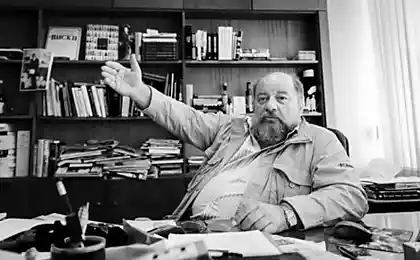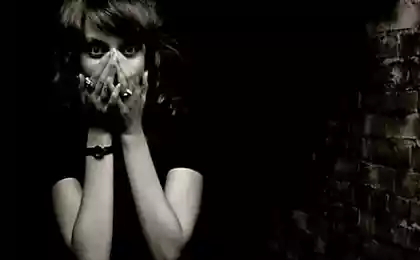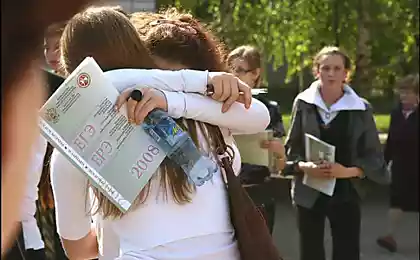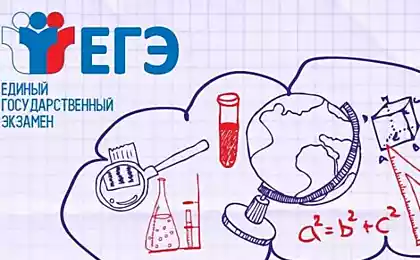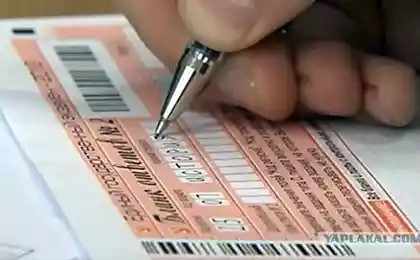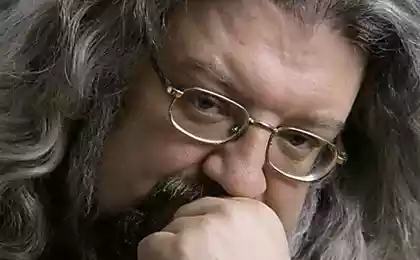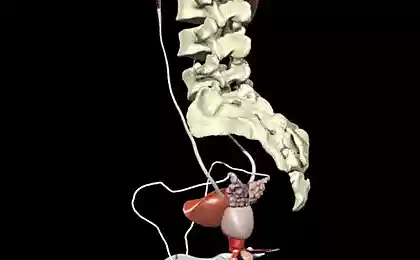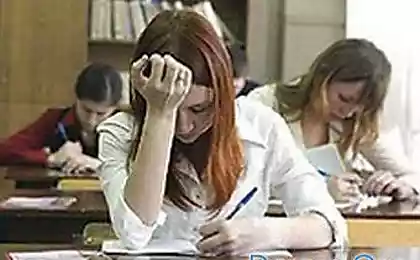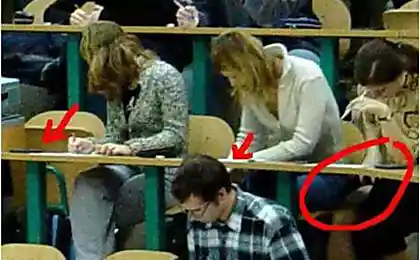569
Exam: fatigue, dullness and fear
Hi. My name is Nastya, and I pass the exam. This year of my life I would say a good word "hell". I don't sleep, pursuing their studies from early morning until late at night, but understand that my education itself ended in September. What happens in school is a sham. My main feeling in relation to itself and the analysis of knowledge gained over the year, degradation. But let's order.

We have long been accustomed to the terrible three letters: a phenomenon called the exam, we began to frighten in elementary school. In fourth grade the first time I said mom I am afraid of the exam and don't want to take it. However, then calmed down a bit: until the 11th grade was for a long time, the format of the exam changed every year, and in General, suddenly it was canceled. No luck.
This year began with a speech of the headmaster, who said that we all should be required to attend paid courses. Refused school courses were written to provide a report about where and what kind of tutoring they are doing. Because "you do the exam you do not pass, do not expect".
Itself begs the question: what I have been doing for 10 years? Except unified state examination does not involve training in school, in class? The answer is no. Despite the fact that the exam is very serious in school, the lessons specifically to it are not prepared. The exam has a certain structure and on average lasts four hours. School program it simply did not fit.
With regard to assistance from teachers, here much depends on a particular specialist. Some openly admit his impotence. Others add confidence to the students with remarks like: "Just try to choose my subject! You don't know anything, you will not pass!". But there are those who have training in the subject.
For example, my school was lucky "physicists" – the lessons until the entire class is doing the job on the program, they decide the tests in the style of the exam. Also the teacher gives them homework on the weekend mandatory satisfied with free consultations. I was lucky – the literature teacher even asked the class who is going to pass her subject. Learning about my motives, just said, "Well, you're prepared, right? I do not doubt." It pleases. Because I just very much doubt. In General, Yes, in spite of the previous 10 years in school, paid courses – anywhere.
Budget 4500 – fees for some courses in literature, Russian and journalism (4 lessons per week).
Other courses: 500 rubles for 2 hours in literature (2 classes per week) and 500 rubles for 2 hours in Russian (2 classes per week).
And now about a reasonable allocation of time and exertion. Preparing for the exam starts at the moment when the pupil is determined with his future profession. This occurs most often in the 10-11 class (at best). That is, the entire burden falls on the last year, turning it into an endless race and stress. We begin frantically to repeat the entire program on the subject for 11 years.
Next question. Since I already know what subjects I will take in the exam, what am I doing in school? Why would I program 11 th grade? Answer: there is no need. In fact, all the disciples, beginning to actively prepare for "their" subjects for the exam, do not pay attention to anything else. Teachers support this topic, working only for those who are interested in them.
For example, the history of a Desk occupied by those who rents: they actively participate in the discussion, trying to absorb the maximum number of "congresses of the CPSU Central Committee" (in the words of my classmates in the exam on the history of a lot of questions about them). All the rest sit in the last desks and go about their business.
The dealer literature to read Turgenev, and try to learn the maximum number of poems, solve the physics test, computer science trying to write in the notebook program for the solution of tasks of physicists in Pascal. But it is rather the exception.
The bulk of the last part just relaxes, preventing the others to learn the important item for them. In General, with regard to schools, this year for me is dedicated to "serving" time: I did not get any useful information on the lessons and basically trying not to sleep because my day ends at 4 am and starts at 6:30.
My typical day goes like this:
What disadvantages of the unified state examination, not including the complete scrapping of the educational process? Here's one of the most serious. The exam influences the choice of my future profession: after all, choosing a College, I choose the subjects on the exam. To prepare for the exam usually starts over two to three years before graduation, so at least something to do. And here's the situation: in the 11th class I began to think about the career of the journalist and on the faculty of philosophy. But it will have to pass the exam on social science and history. And if the science you can prepare for a year of hard work, the story is unlikely: too many dates and events.
In General, we choose the future, focusing not on their own preferences, and items that will be able to pass. So, I'm going to do journalism, even if I've changed my mind.
Moreover, until the end of June (i.e. before the information about the points) I don't know what University will be able to apply, what level of University can apply. Example: to enter the budget of the journalism Department, I need to (minimally) at MSU 348 points, Saint Petersburg state University – 269, TSU – 249 (maximum for single subject – 100 points).
Of course, you can set a goal "to write the exam 100 points" and thereby get admission in any University, but it is very difficult. For example, I'm taking literature, we need to re-read almost all software works for 11 years. It read, even if I diligently studied literature all these years: after all, for the exam you need to remember the slightest details of those or other works. In an open Bank the exam (examples of tasks) are modifications of assignments from simple to really difficult, which even with the help of the Internet and the teacher is hard to understand.
Here is an example of some of the tasks in literature:
1. What is the symbolic meaning of the expression "in the seventh century of Troyan"?
2. In any works of Russian literature of the XX century used the image of the wolf and what is the originality of the poetic position of the author of "Word about Igor's regiment"?
Well, a psychological component. What feelings have become familiar to me over the past year?
The fear that always arises when I think of how much time remains before the exam or when I learn about another complexity of some tasks in the new year.
Fatigue: I am constantly in a hurry, go with the courses the courses late, all the time want to sleep and do not have time to complete their education.
Indifference. Everything that brought me pleasure, what I really liked to do with my life now just disappeared. By the way, sports a throw in the ninth grade, before OGE (similar to the exam for ninth grade). Guitar, reading favorite books, watching movies, walks in the fresh air – all this time.
From my life disappeared, even literature. Yes, I teach it almost every day for courses and lessons, but I think I stopped loving her. Indeed, after three months of this training I feel bad from one of the books of Gogol and Turgenev, which I have recently truly loved. I'm just not interested to live my whole function is reduced to constant learning, reading, proveshivaniju tests.
See also:
Attention! This toy can make the baby sick!
Tatiana Krasnova: the exam — we learned to test, they have learned to pass
And the most important thing. I feel like getting stupid. I spent the whole year not studying, analyze and comprehend, and stupidly hammering the same subject, with the result that my Outlook was the size of a toothpick. Summing up, we can draw this conclusion: the exam is the worst conductor in adult life.published
Author: Nastya Akimenko
P. S. And remember, only by changing their consumption — together we change the world! ©
Source: 72.ru/text/mood/166961602613248.html

We have long been accustomed to the terrible three letters: a phenomenon called the exam, we began to frighten in elementary school. In fourth grade the first time I said mom I am afraid of the exam and don't want to take it. However, then calmed down a bit: until the 11th grade was for a long time, the format of the exam changed every year, and in General, suddenly it was canceled. No luck.
This year began with a speech of the headmaster, who said that we all should be required to attend paid courses. Refused school courses were written to provide a report about where and what kind of tutoring they are doing. Because "you do the exam you do not pass, do not expect".
Itself begs the question: what I have been doing for 10 years? Except unified state examination does not involve training in school, in class? The answer is no. Despite the fact that the exam is very serious in school, the lessons specifically to it are not prepared. The exam has a certain structure and on average lasts four hours. School program it simply did not fit.
With regard to assistance from teachers, here much depends on a particular specialist. Some openly admit his impotence. Others add confidence to the students with remarks like: "Just try to choose my subject! You don't know anything, you will not pass!". But there are those who have training in the subject.
For example, my school was lucky "physicists" – the lessons until the entire class is doing the job on the program, they decide the tests in the style of the exam. Also the teacher gives them homework on the weekend mandatory satisfied with free consultations. I was lucky – the literature teacher even asked the class who is going to pass her subject. Learning about my motives, just said, "Well, you're prepared, right? I do not doubt." It pleases. Because I just very much doubt. In General, Yes, in spite of the previous 10 years in school, paid courses – anywhere.
Budget 4500 – fees for some courses in literature, Russian and journalism (4 lessons per week).
Other courses: 500 rubles for 2 hours in literature (2 classes per week) and 500 rubles for 2 hours in Russian (2 classes per week).
- 500х2х4=4000 – literature;
- 500х2х4=4000 – Russian language;
- 4500 – literature and Russian.
And now about a reasonable allocation of time and exertion. Preparing for the exam starts at the moment when the pupil is determined with his future profession. This occurs most often in the 10-11 class (at best). That is, the entire burden falls on the last year, turning it into an endless race and stress. We begin frantically to repeat the entire program on the subject for 11 years.
Next question. Since I already know what subjects I will take in the exam, what am I doing in school? Why would I program 11 th grade? Answer: there is no need. In fact, all the disciples, beginning to actively prepare for "their" subjects for the exam, do not pay attention to anything else. Teachers support this topic, working only for those who are interested in them.
For example, the history of a Desk occupied by those who rents: they actively participate in the discussion, trying to absorb the maximum number of "congresses of the CPSU Central Committee" (in the words of my classmates in the exam on the history of a lot of questions about them). All the rest sit in the last desks and go about their business.
The dealer literature to read Turgenev, and try to learn the maximum number of poems, solve the physics test, computer science trying to write in the notebook program for the solution of tasks of physicists in Pascal. But it is rather the exception.
The bulk of the last part just relaxes, preventing the others to learn the important item for them. In General, with regard to schools, this year for me is dedicated to "serving" time: I did not get any useful information on the lessons and basically trying not to sleep because my day ends at 4 am and starts at 6:30.
My typical day goes like this:
- 6:30 – lift;
- 8:00-14:30 school;
- 15:00 – 15:30 – lunch and time to complete assignments for courses, or relax;
- 15:30 – 16:00 – meeting;
- 16:00 – 17:00 – time to get to the course (reading books and news);
- 17:00 – 18:30 courses in literature or Russian language;
- 19:30 – 21:30 courses on the same subjects, but in a different place;
- 21:30 – 22:30 – the way home (books);
- 22:30 – 01:00 – reading, homework and so on.
What disadvantages of the unified state examination, not including the complete scrapping of the educational process? Here's one of the most serious. The exam influences the choice of my future profession: after all, choosing a College, I choose the subjects on the exam. To prepare for the exam usually starts over two to three years before graduation, so at least something to do. And here's the situation: in the 11th class I began to think about the career of the journalist and on the faculty of philosophy. But it will have to pass the exam on social science and history. And if the science you can prepare for a year of hard work, the story is unlikely: too many dates and events.
In General, we choose the future, focusing not on their own preferences, and items that will be able to pass. So, I'm going to do journalism, even if I've changed my mind.
Moreover, until the end of June (i.e. before the information about the points) I don't know what University will be able to apply, what level of University can apply. Example: to enter the budget of the journalism Department, I need to (minimally) at MSU 348 points, Saint Petersburg state University – 269, TSU – 249 (maximum for single subject – 100 points).
Of course, you can set a goal "to write the exam 100 points" and thereby get admission in any University, but it is very difficult. For example, I'm taking literature, we need to re-read almost all software works for 11 years. It read, even if I diligently studied literature all these years: after all, for the exam you need to remember the slightest details of those or other works. In an open Bank the exam (examples of tasks) are modifications of assignments from simple to really difficult, which even with the help of the Internet and the teacher is hard to understand.
Here is an example of some of the tasks in literature:
1. What is the symbolic meaning of the expression "in the seventh century of Troyan"?
2. In any works of Russian literature of the XX century used the image of the wolf and what is the originality of the poetic position of the author of "Word about Igor's regiment"?
Well, a psychological component. What feelings have become familiar to me over the past year?
The fear that always arises when I think of how much time remains before the exam or when I learn about another complexity of some tasks in the new year.
Fatigue: I am constantly in a hurry, go with the courses the courses late, all the time want to sleep and do not have time to complete their education.
Indifference. Everything that brought me pleasure, what I really liked to do with my life now just disappeared. By the way, sports a throw in the ninth grade, before OGE (similar to the exam for ninth grade). Guitar, reading favorite books, watching movies, walks in the fresh air – all this time.
From my life disappeared, even literature. Yes, I teach it almost every day for courses and lessons, but I think I stopped loving her. Indeed, after three months of this training I feel bad from one of the books of Gogol and Turgenev, which I have recently truly loved. I'm just not interested to live my whole function is reduced to constant learning, reading, proveshivaniju tests.
See also:
Attention! This toy can make the baby sick!
Tatiana Krasnova: the exam — we learned to test, they have learned to pass
And the most important thing. I feel like getting stupid. I spent the whole year not studying, analyze and comprehend, and stupidly hammering the same subject, with the result that my Outlook was the size of a toothpick. Summing up, we can draw this conclusion: the exam is the worst conductor in adult life.published
Author: Nastya Akimenko
P. S. And remember, only by changing their consumption — together we change the world! ©
Source: 72.ru/text/mood/166961602613248.html
When FATIGUE does not sleep: effective the methods of acupressure
How to insulate a house with plaster: tips and recommendations

